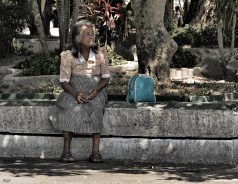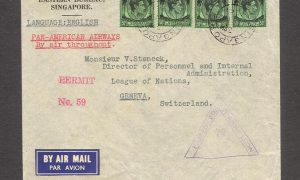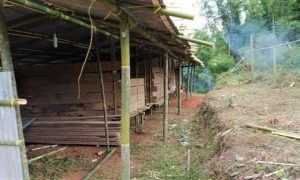President Rodrigo Duterte’s COVID-19 response has not swayed from his authoritarian approach to leadership. Consistent with his strongman brand, Duterte tells Filipinos to obey the government’s pandemic protocols—no questions asked. The Philippines is failing to flatten the curve because Duterte’s crisis response is prioritising the militant punishment of quarantine violations over strengthening public health infrastructure.
The view from above, however, is incomplete. Various local governments are spearheading innovative and compassionate public health and social support policies. In the face of Duterte’s ineffective and militarised COVID-19 response, the favourable results achieved by local leaders are fuelling counter-narratives of resistance and alternative visions of leadership and governance.
Initially, President Duterte feigned control of the situation by downplaying the virus. By the end of June 2020, the World Health Organization was reporting that the Philippines had the most rapidly increasing COVID-19 infection rate in the Western Pacific region. Presidential Spokesperson Harry Roque publicly disputed the WHO statement, asserting that Duterte is in control of the pandemic. Dismissive of such criticism, that month the Duterte administration railroaded an anti-terror bill that potentially criminalises dissent.
The administration is attempting to project an image of decisiveness through a punitive crackdown. Just a month into the commencement of a Luzon-wide lockdown in 17 March, the Philippine National Police (PNP) had already arrested nearly 30,000 quarantine violators. Outbreaks are being blamed on the pasaway (unruly Filipino), typically those who have no choice but to go out and find a livelihood despite the lockdown. Urban poor residents of Sitio San Roque were violently dispersed when they went out to decry the absence of any food packs from the government two weeks into the lockdown. Following the dispersal, Duterte televised a national address and threatened lockdown violators with a chilling command to the police and military to “shoot them dead”. The killing of Winston Ragos in broad daylight by a police officer was a monumental case exposing the abuses of the administration’s militarised response.
Against the dismal results of Duterte’s COVID-19 response, some city governments are stepping up to compensate for gaps in national public health and welfare infrastructure— challenging the centralised nature of Duterte’s authoritarian governance in doing so. One of the most popular local leaders is Mayor Vico Sotto in Pasig City, whose innovative actions such as the deployment of disinfectant drones and conversion of hotels into quarantine facilities have earned widespread praise. His decision to include LGBTQ parents in the city’s financial aid package has been lauded as an example of an inclusive COVID-19 relief programme.
Best practices of local governments can also spill over to others. Valenzuela City has adopted Pasig City’s Mobile Palengke initiative, where mobile markets travel to prevent residents from flocking in crowds to buy produce and essentials. Valenzuela City called their initiative Market on Wheels, using tricycles instead of four-wheeled vehicles to suit the city’s small roads. Valenzuela City has also come up with commendable responses on its own—it formed the country’s first localised COVID-19 mass testing programme.
Outside the National Capital Region, many local leaders are also rising to the fore. In the Western Visayas region, Iloilo City under Mayor Jerry Treñas captured headlines by demonstrating a compassionate alternative to the central government’s arrests of lockdown violators. Iloilo City instead takes violators to a local plaza to watch documentaries on COVID-19 in order to change complacent behaviour and attitudes towards the pandemic.
Upland in Benguet province, Baguio City under Mayor Benjamin Magalong has initiated another unexpected response. A retired general of the PNP, Mayor Magalong’s military background has not meant conformity to the administration’s armed and aggressive approach. Where Duterte has ordered military personnel loaded with ammunition to patrol Manila’s borders, Mayor Magalong’s policemen have ditched arms to carry disinfectant.
Baguio City is also deviating from the national administration’s stance of tracing only positive cases by tracing the contacts of even probable COVID-19 cases. Drawing upon his experience as the former head of the PNP’s Criminal Investigation and Detection Group, Mayor Magalong is using a case management analysis system to zero in on gaps in Baguio’s contact tracing efforts. As of mid-June, Baguio City has only recorded 36 COVID-19 patients since March despite being a major tourist destination and urban hub.
Threatened by local mayors calling better shots than the national government, Duterte has warned them to stand down and comply with national directives, advising that the Department of Justice and Department of the Interior and Local Government are ready to file administrative cases. But the threat of reprisals has not entirely prevented local officials from speaking up against the failures of Duterte’s crisis response.
Ormoc City Mayor Richard Gomez has slammed the Balik Probinsya program, a pet project of Duterte’s close ally and former special assistant Bong Go that facilitates the return of Metro Manila urban poor to their home provinces. Mayor Gomez accused the national government of carelessly implementing Balik Probinsya without appropriate PPE and hygiene precautions, burdening local government units with an increase in positive cases. Ormoc City, initially praised for closing its borders earlier than most, recorded its first COVID-19 case on 5 June after someone who returned from Manila tested positive. The Balik Probinsya program was suspended on 11 June due to such debacles.
Standoffs between city mayors and national agencies demonstrate that local governments are not impotent, but can assert themselves in the face of the national administration’s inefficiencies. Indignant over red tape, a defiant Mayor Marcelino Teodoro opened a COVID-19 testing centre in Marikina without a Department of Health (DOH) permit. Soon after Mayor Teodoro’s bold action, a team composed of DOH and Research Institute for Tropical Medicine personnel arrived to accredit the facility.
Who will look after Lola during the pandemic?
Filipino grandmothers often bear the brunt of providing and caring for their families. The Duterte government's COVID-19 response overlooks them.
The most controversial conflict between local decisions and national directives came when the National Bureau of Investigation summoned Pasig City Mayor Sotto for allegedly defying the Bayanihan Law, which provides President Duterte with special powers over local executives. Mayor Sotto allegedly violated the law by allowing tricycle drivers to operate in Pasig despite a national ban on tricycle operations. Mayor Sotto petitioned for a retraction of the ban on the grounds that tricycles are crucial for emergency actions and front-liner mobility. When the national government dismissed the petition, outraged citizens, celebrities, and popular icons rallied behind Mayor Sotto, making the Twitter hashtag #ProtectVico trend worldwide.
Citizens can be fiercely protective of politicians who do their job well. Public outcry and organic digital movements serve as preventive checks on Duterte’s iron-fisted pandemic management. Widespread support for Mayor Sotto also meant pushing back against Mocha Uson, one of the Duterte administration’s most famous propagandists, for her scathing remarks against the local leader. Uson’s blog criticised the young mayor’s decision on tricycle operations, alleging that Mayor Sotto is only pabebe (trying to act cute). #ProtectVico then expanded to the trending hashtag #MochaUsonIsOverParty after social media users successfully got Mocha Uson’s Facebook page suspended by mass reporting it as a fake news channel.
While Filipinos see glimmers of hope in local leadership, local successes alone will not get the Philippines through the pandemic. The country is still unable to flatten the curve because of whimsical decisions by the national government that go against risk assessments and legitimate data. The Duterte administration needs to check its authoritarian tendencies and start listening to local government units, rather than imposing directives that engender little improvement. It is local governments that are keeping the Philippines afloat during this crisis. The Philippines can only overcome the pandemic if the responsive and compassionate public health and social welfare policies of city governments are unhampered by authoritarian and centralised rule.
 Facebook
Facebook  Twitter
Twitter  Soundcloud
Soundcloud  Youtube
Youtube  Rss
Rss 



